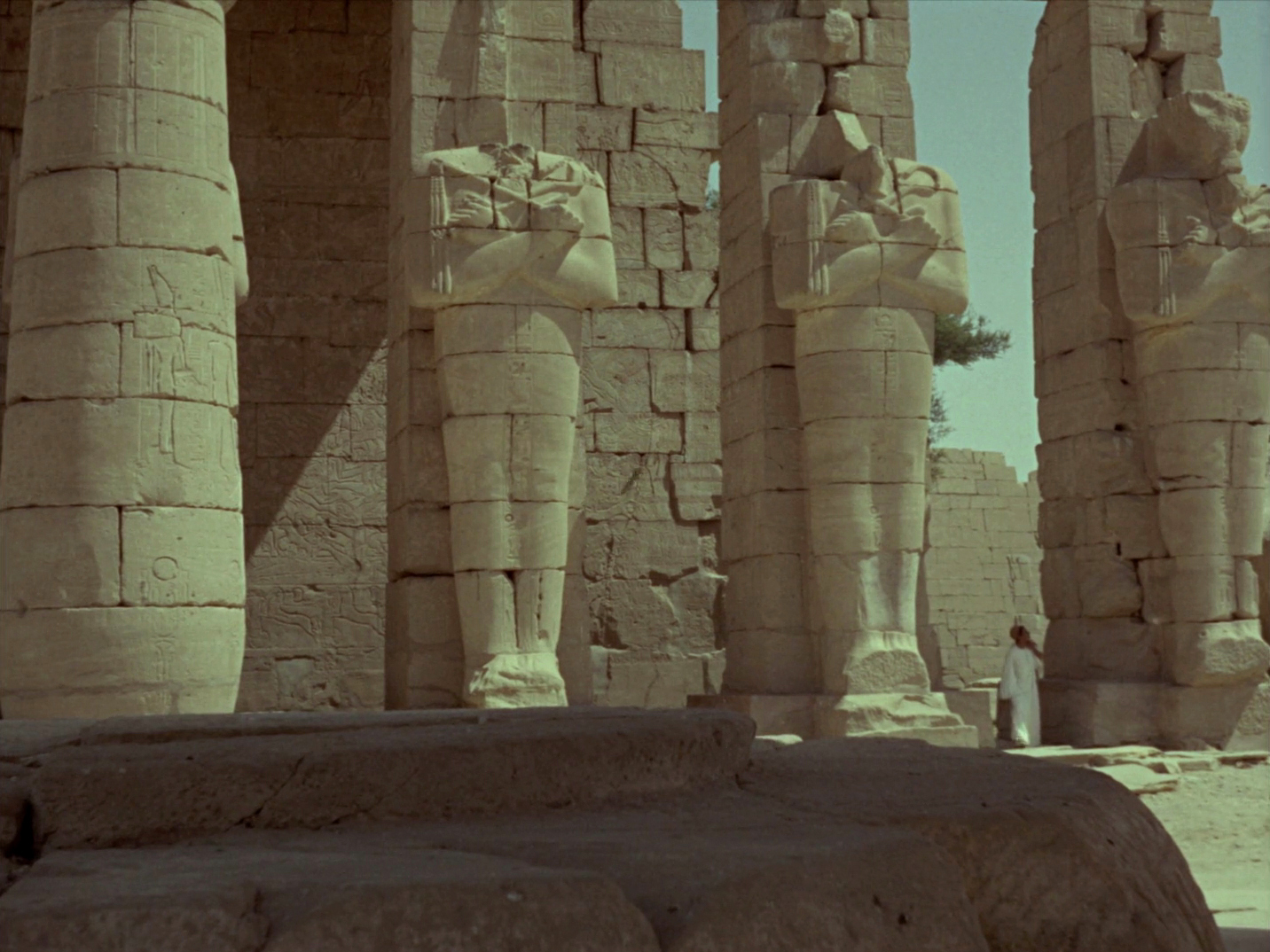
Shadi Abdel Salam carried two cultures within him: he was born and raised in Alexandria, and his mother and maternal ancestors came from Al-Minieh. He travelled in two worlds: that of the cosmopolitan city of Alexandria and its rich Hellenic heritage, and that of Al-Minieh, the pearl of Upper Egypt, imbued with traditions and customs drawing their rigidity from distant pharaonic origins. Although he looked like a noble cavalier, with matching gentleman-like qualities, fluent in English, French and Italian, he always remained that austere son of Upper Egypt, linked to his ancestors who lie inside the tombs dug into the hills of Thebes by a very long history.